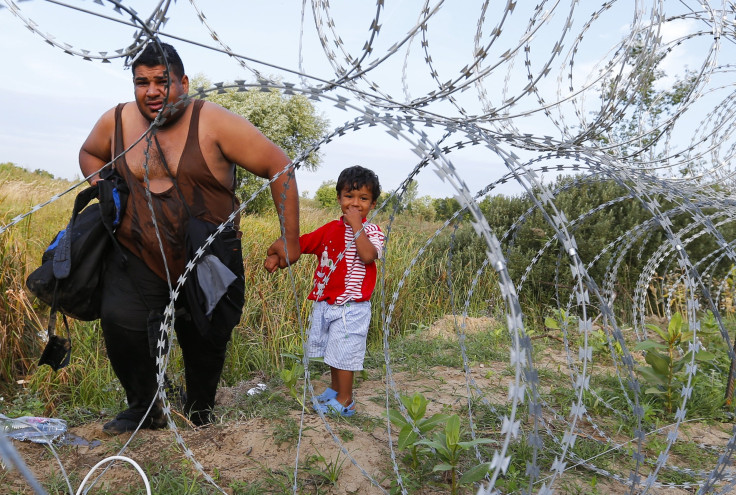European Refugee Crisis: Norway Pledges $7.6 Million To Serbia And Macedonia Amid Border Crackdowns

Norway has pledged 60 million Norwegian krone, or $7.68 million, to support refugees in Serbia and Macedonia, Minister of Foreign Affairs Børge Brende announced Thursday. Half of the funds would go to the refugee reception in Serbia, and the other half to humanitarian aid in Serbia and Macedonia, he said.
"I would like to commend Serbia for its huge effort and for the generosity that the authorities, civil society organizations and individuals have shown toward the large numbers of refugees, even though the country’s economic situation is already difficult," Brende, who briefly visited Serbia Sept. 10, said in a statement.
Serbia and Macedonia are among the newest hotspots in the European refugee crisis, in which hundreds of thousands of Syrians, Iraqis, Afghans, Somalis and others fleeing war-torn countries have tried to enter Europe -- either by taking boats from North Africa or Turkey to Greece and Italy or traveling overland through Western Balkan countries.
Many of those refugees tried to pass through Hungary into Germany. But Hungary sealed its border with Serbia Tuesday, garnering international criticism and pushing refugees into other neighboring countries, such as Croatia and Slovenia. In Croatia, security forces met refugees streaming over the border from Hungary with rubber bullets, water cannons and tear gas, injuring two. Thousands of refugees have entered Croatia in recent days.
The border closure also ratcheted up pressure on Serbia, because although it is not a final destination for many refugees, thousands of refugees are entering the country daily, and relief workers have struggled to provide refugees with shelter, water, food and sanitary facilities. Macedonia, meanwhile, is processing up to 5,000 refugees every day who aim to transit into Europe. But the border closures could stymie the process and create a backlog of refugees.
European leaders failed Monday to come to an agreement about how to distribute 120,000 of the refugees across the continent. The U.N. high commissioner for refugees proposed an emergency plan of action Wednesday that included an emergency package "from the EU to Serbia to establish a similar capacity to properly assist, register and relocate people to other European countries."
© Copyright IBTimes 2024. All rights reserved.












